Thyme (Thymus vulgaris) is an aromatic herb that has been widely used for culinary and medicinal purposes. Beyond its delightful flavor, thyme has garnered attention for its potential health benefits supported by scientific research. This article aims to explore the scientifically supported benefits of consuming thyme and shed light on its various therapeutic properties.
Studies have shown that thyme exhibits anti-inflammatory effects by inhibiting the production of inflammatory markers and enzymes. This makes thyme a potential natural remedy for conditions associated with inflammation, such as respiratory ailments and chronic diseases.Continuing on the discussion of thyme’s anti-inflammatory properties, it’s worth highlighting some of the specific attributes that make this herb noteworthy in combating inflammation. Thyme contains several compounds, such as carvacrol, thymol, and rosmarinic acid, which have been identified for their potent anti-inflammatory effects. These compounds work synergistically to suppress the activity of pro-inflammatory enzymes like cyclooxygenase (COX) and lipoxygenase (LOX), thus reducing the production of inflammatory mediators like prostaglandins and leukotrienes.Moreover, thyme possesses antioxidant properties that further contribute to its anti-inflammatory activity. Oxidative stress plays a significant role in the initiation and progression of inflammation-related disorders. Thyme’s rich array of antioxidants helps neutralize reactive oxygen species (ROS) and free radicals, thereby mitigating oxidative damage to cells and tissues. By alleviating oxidative stress, thyme helps attenuate the inflammatory response and promotes tissue repair and regeneration.In addition to its direct anti-inflammatory effects, thyme also demonstrates immunomodulatory properties, meaning it can regulate the immune system’s response to inflammation. Studies have suggested that thyme extracts can modulate the activity of immune cells such as macrophages, lymphocytes, and dendritic cells, leading to a balanced immune response. This modulation helps prevent excessive inflammation while still maintaining the body’s ability to defend against pathogens and foreign invaders.
Thyme has a long history of use in traditional medicine for respiratory conditions. Research suggests that thyme may help alleviate symptoms of bronchitis, cough, and congestion. Its expectorant properties help promote the clearance of mucus from the airways, supporting respiratory health.In addition to its expectorant properties, thyme contains compounds like thymol and carvacrol, which possess antimicrobial and anti-inflammatory effects. These properties make thyme particularly beneficial for combating respiratory infections caused by bacteria or viruses. Thyme’s antimicrobial activity can help reduce the severity and duration of respiratory infections by inhibiting the growth of pathogens in the respiratory tract.Moreover, thyme is rich in antioxidants, such as flavonoids, which help protect the respiratory system from oxidative stress and damage caused by free radicals. Oxidative stress can contribute to inflammation in the airways, exacerbating respiratory conditions like asthma and chronic obstructive pulmonary disease (COPD). By neutralizing free radicals, thyme’s antioxidants can help mitigate inflammation and support overall respiratory health.Furthermore, thyme exhibits bronchodilator properties, meaning it can help relax the muscles of the respiratory tract and widen the airways. This action can be beneficial for individuals suffering from conditions like asthma or bronchospasm, as it can improve airflow and ease breathing difficulties. Thyme’s bronchodilator effects make it a valuable natural remedy for managing symptoms of respiratory conditions and promoting better respiratory function.
Thyme has been traditionally used to support digestion and relieve gastrointestinal discomforts. It stimulates the production of digestive enzymes, enhancing the breakdown of food and promoting efficient nutrient absorption. Thyme also exhibits carminative properties, reducing gas and bloating.Thyme, renowned for its culinary uses, contains compounds such as thymol that contribute to its digestive benefits. Thymol, a potent antioxidant and antispasmodic agent found in thyme, helps to relax the muscles of the digestive tract, easing cramping and discomfort associated with indigestion. This natural relaxation effect can also aid in alleviating symptoms of irritable bowel syndrome (IBS) and other gastrointestinal issues.Furthermore, thyme possesses antimicrobial properties, which can help combat harmful bacteria such as Escherichia coli and Staphylococcus aureus that may cause digestive upset. By inhibiting the growth of these pathogens, thyme supports a healthy balance of gut flora, essential for optimal digestion and overall well-being.In addition to its direct effects on digestion, thyme contributes to overall digestive health through its anti-inflammatory properties. Chronic inflammation in the gastrointestinal tract can lead to conditions such as inflammatory bowel disease (IBD) and contribute to digestive discomfort. Thyme’s anti-inflammatory compounds help to reduce inflammation, soothing irritated tissues and promoting healing within the digestive system.
Certain compounds in thyme, such as rosmarinic acid and flavonoids, have been linked to cognitive benefits. They possess neuroprotective properties and may help improve memory and concentration. Thyme’s potential role in supporting brain health is an area of ongoing research.Thyme contains an array of bioactive compounds that contribute to its potential cognitive benefits. One such compound is carvacrol, which has been found to possess anti-inflammatory and antioxidant properties. These properties are crucial for maintaining brain health as inflammation and oxidative stress are implicated in cognitive decline and neurodegenerative diseases such as Alzheimer’s.Moreover, thyme contains terpenoids, including thymol, which have shown promising effects in animal studies for enhancing cognitive function. These terpenoids may exert their effects by modulating neurotransmitter levels and promoting the growth of nerve cells in the brain. Additionally, thyme’s aroma has been suggested to have mood-enhancing effects, which could indirectly impact cognitive function by reducing stress and anxiety levels.Furthermore, thyme is rich in vitamins and minerals such as vitamin K, iron, and manganese, which play essential roles in brain function and neurotransmitter synthesis. Vitamin K, for instance, is involved in sphingolipid metabolism, a process crucial for maintaining the integrity of brain cell membranes. Iron is essential for oxygen transport and energy production in the brain, while manganese acts as a cofactor for enzymes involved in neurotransmitter synthesis.
Thyme contains compounds that have shown potential benefits for cardiovascular health. Studies have suggested that thyme may help lower blood pressure and improve lipid profiles by reducing cholesterol and triglyceride levels. However, further research is needed to elucidate the precise mechanisms and potential long-term effects.Additionally, thyme possesses anti-inflammatory properties that can benefit cardiovascular health. Chronic inflammation is associated with various cardiovascular conditions, including atherosclerosis and hypertension. Thyme contains compounds like rosmarinic acid and carvacrol, which have been shown to inhibit inflammatory pathways in the body. By reducing inflammation, thyme may help protect against the development and progression of cardiovascular disease.Furthermore, thyme may have vasodilatory effects, meaning it can relax and widen blood vessels. This action can improve blood flow and circulation, reducing the workload on the heart and lowering blood pressure. Thyme’s vasodilatory effects may be attributed to its ability to enhance the production of nitric oxide, a molecule that helps dilate blood vessels. By promoting vasodilation, thyme may help prevent conditions such as hypertension and reduce the risk of heart attack and stroke.
Thyme is rich in essential nutrients such as vitamins A and C, which are known for their immune-boosting properties. These vitamins, along with other antioxidants present in thyme, help support the immune system and protect against infections and diseases.Moreover, thyme contains trace elements such as manganese, iron, and copper, which play crucial roles in immune function. These minerals are involved in various enzymatic reactions and antioxidant defenses within the body, contributing to overall immune resilience. Incorporating thyme into your meals or enjoying it as a tea may provide a convenient and flavorful way to boost your intake of these essential nutrients.Furthermore, thyme exhibits anti-inflammatory properties, which can contribute to overall immune health. Chronic inflammation has been linked to a range of health issues, including compromised immune function. By reducing inflammation, thyme may indirectly support the immune system by creating a more favorable environment for its proper functioning. Indulge in a delightful culinary adventure with Jamie Oliver’s tantalizing recipe for Roasted Chicken Breast with Pancetta, Leeks, and Thyme. This dish combines tender chicken breasts with the savory richness of pancetta, the delicate sweetness of leeks, and the aromatic charm of fresh thyme. Roasted to perfection, this recipe promises a symphony of flavors and textures that will elevate your dining experience. Follow along with Jamie’s expert guidance to create a dish that’s not only delicious but also simple to prepare. Perfect for any occasion, this roasted chicken masterpiece is sure to become a favorite in your repertoire.
Indulge in a delightful culinary adventure with Jamie Oliver’s tantalizing recipe for Roasted Chicken Breast with Pancetta, Leeks, and Thyme. This dish combines tender chicken breasts with the savory richness of pancetta, the delicate sweetness of leeks, and the aromatic charm of fresh thyme. Roasted to perfection, this recipe promises a symphony of flavors and textures that will elevate your dining experience. Follow along with Jamie’s expert guidance to create a dish that’s not only delicious but also simple to prepare. Perfect for any occasion, this roasted chicken masterpiece is sure to become a favorite in your repertoire.
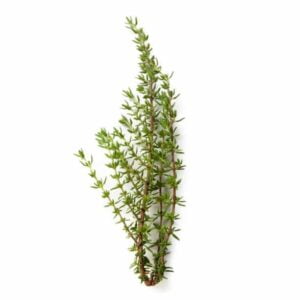
Antimicrobial and Antioxidant Effects
Thyme possesses potent antimicrobial properties due to the presence of bioactive compounds like thymol and carvacrol. These compounds have demonstrated effectiveness against various bacteria, including antibiotic-resistant strains, and certain fungi. Additionally, thyme is rich in antioxidants, which help neutralize harmful free radicals and protect the body against oxidative stress.Thyme’s antimicrobial activity is particularly noteworthy due to its ability to combat a wide range of pathogens, including both Gram-positive and Gram-negative bacteria. Studies have shown that thyme extracts can inhibit the growth of bacteria such as Escherichia coli, Staphylococcus aureus, and Salmonella spp., among others. This broad-spectrum antimicrobial action makes thyme a valuable natural alternative for addressing bacterial infections, especially in cases where conventional antibiotics may be ineffective due to resistance.Furthermore, thyme’s antioxidant properties contribute significantly to its health-promoting effects. The antioxidants present in thyme, such as flavonoids, phenolic compounds, and vitamin C, play a crucial role in scavenging free radicals and reducing oxidative damage to cells and tissues. By mitigating oxidative stress, thyme can help prevent various chronic diseases, including cardiovascular ailments, neurodegenerative disorders, and certain types of cancer. Anti-inflammatory Properties
Anti-inflammatory Properties
Studies have shown that thyme exhibits anti-inflammatory effects by inhibiting the production of inflammatory markers and enzymes. This makes thyme a potential natural remedy for conditions associated with inflammation, such as respiratory ailments and chronic diseases.Continuing on the discussion of thyme’s anti-inflammatory properties, it’s worth highlighting some of the specific attributes that make this herb noteworthy in combating inflammation. Thyme contains several compounds, such as carvacrol, thymol, and rosmarinic acid, which have been identified for their potent anti-inflammatory effects. These compounds work synergistically to suppress the activity of pro-inflammatory enzymes like cyclooxygenase (COX) and lipoxygenase (LOX), thus reducing the production of inflammatory mediators like prostaglandins and leukotrienes.Moreover, thyme possesses antioxidant properties that further contribute to its anti-inflammatory activity. Oxidative stress plays a significant role in the initiation and progression of inflammation-related disorders. Thyme’s rich array of antioxidants helps neutralize reactive oxygen species (ROS) and free radicals, thereby mitigating oxidative damage to cells and tissues. By alleviating oxidative stress, thyme helps attenuate the inflammatory response and promotes tissue repair and regeneration.In addition to its direct anti-inflammatory effects, thyme also demonstrates immunomodulatory properties, meaning it can regulate the immune system’s response to inflammation. Studies have suggested that thyme extracts can modulate the activity of immune cells such as macrophages, lymphocytes, and dendritic cells, leading to a balanced immune response. This modulation helps prevent excessive inflammation while still maintaining the body’s ability to defend against pathogens and foreign invaders. Respiratory Health
Respiratory Health
Thyme has a long history of use in traditional medicine for respiratory conditions. Research suggests that thyme may help alleviate symptoms of bronchitis, cough, and congestion. Its expectorant properties help promote the clearance of mucus from the airways, supporting respiratory health.In addition to its expectorant properties, thyme contains compounds like thymol and carvacrol, which possess antimicrobial and anti-inflammatory effects. These properties make thyme particularly beneficial for combating respiratory infections caused by bacteria or viruses. Thyme’s antimicrobial activity can help reduce the severity and duration of respiratory infections by inhibiting the growth of pathogens in the respiratory tract.Moreover, thyme is rich in antioxidants, such as flavonoids, which help protect the respiratory system from oxidative stress and damage caused by free radicals. Oxidative stress can contribute to inflammation in the airways, exacerbating respiratory conditions like asthma and chronic obstructive pulmonary disease (COPD). By neutralizing free radicals, thyme’s antioxidants can help mitigate inflammation and support overall respiratory health.Furthermore, thyme exhibits bronchodilator properties, meaning it can help relax the muscles of the respiratory tract and widen the airways. This action can be beneficial for individuals suffering from conditions like asthma or bronchospasm, as it can improve airflow and ease breathing difficulties. Thyme’s bronchodilator effects make it a valuable natural remedy for managing symptoms of respiratory conditions and promoting better respiratory function. Digestive Aid
Digestive Aid
Thyme has been traditionally used to support digestion and relieve gastrointestinal discomforts. It stimulates the production of digestive enzymes, enhancing the breakdown of food and promoting efficient nutrient absorption. Thyme also exhibits carminative properties, reducing gas and bloating.Thyme, renowned for its culinary uses, contains compounds such as thymol that contribute to its digestive benefits. Thymol, a potent antioxidant and antispasmodic agent found in thyme, helps to relax the muscles of the digestive tract, easing cramping and discomfort associated with indigestion. This natural relaxation effect can also aid in alleviating symptoms of irritable bowel syndrome (IBS) and other gastrointestinal issues.Furthermore, thyme possesses antimicrobial properties, which can help combat harmful bacteria such as Escherichia coli and Staphylococcus aureus that may cause digestive upset. By inhibiting the growth of these pathogens, thyme supports a healthy balance of gut flora, essential for optimal digestion and overall well-being.In addition to its direct effects on digestion, thyme contributes to overall digestive health through its anti-inflammatory properties. Chronic inflammation in the gastrointestinal tract can lead to conditions such as inflammatory bowel disease (IBD) and contribute to digestive discomfort. Thyme’s anti-inflammatory compounds help to reduce inflammation, soothing irritated tissues and promoting healing within the digestive system. Cognitive Function and Memory
Cognitive Function and Memory
Certain compounds in thyme, such as rosmarinic acid and flavonoids, have been linked to cognitive benefits. They possess neuroprotective properties and may help improve memory and concentration. Thyme’s potential role in supporting brain health is an area of ongoing research.Thyme contains an array of bioactive compounds that contribute to its potential cognitive benefits. One such compound is carvacrol, which has been found to possess anti-inflammatory and antioxidant properties. These properties are crucial for maintaining brain health as inflammation and oxidative stress are implicated in cognitive decline and neurodegenerative diseases such as Alzheimer’s.Moreover, thyme contains terpenoids, including thymol, which have shown promising effects in animal studies for enhancing cognitive function. These terpenoids may exert their effects by modulating neurotransmitter levels and promoting the growth of nerve cells in the brain. Additionally, thyme’s aroma has been suggested to have mood-enhancing effects, which could indirectly impact cognitive function by reducing stress and anxiety levels.Furthermore, thyme is rich in vitamins and minerals such as vitamin K, iron, and manganese, which play essential roles in brain function and neurotransmitter synthesis. Vitamin K, for instance, is involved in sphingolipid metabolism, a process crucial for maintaining the integrity of brain cell membranes. Iron is essential for oxygen transport and energy production in the brain, while manganese acts as a cofactor for enzymes involved in neurotransmitter synthesis. Cardiovascular Health
Cardiovascular Health
Thyme contains compounds that have shown potential benefits for cardiovascular health. Studies have suggested that thyme may help lower blood pressure and improve lipid profiles by reducing cholesterol and triglyceride levels. However, further research is needed to elucidate the precise mechanisms and potential long-term effects.Additionally, thyme possesses anti-inflammatory properties that can benefit cardiovascular health. Chronic inflammation is associated with various cardiovascular conditions, including atherosclerosis and hypertension. Thyme contains compounds like rosmarinic acid and carvacrol, which have been shown to inhibit inflammatory pathways in the body. By reducing inflammation, thyme may help protect against the development and progression of cardiovascular disease.Furthermore, thyme may have vasodilatory effects, meaning it can relax and widen blood vessels. This action can improve blood flow and circulation, reducing the workload on the heart and lowering blood pressure. Thyme’s vasodilatory effects may be attributed to its ability to enhance the production of nitric oxide, a molecule that helps dilate blood vessels. By promoting vasodilation, thyme may help prevent conditions such as hypertension and reduce the risk of heart attack and stroke. Immune Support
Immune Support
Thyme is rich in essential nutrients such as vitamins A and C, which are known for their immune-boosting properties. These vitamins, along with other antioxidants present in thyme, help support the immune system and protect against infections and diseases.Moreover, thyme contains trace elements such as manganese, iron, and copper, which play crucial roles in immune function. These minerals are involved in various enzymatic reactions and antioxidant defenses within the body, contributing to overall immune resilience. Incorporating thyme into your meals or enjoying it as a tea may provide a convenient and flavorful way to boost your intake of these essential nutrients.Furthermore, thyme exhibits anti-inflammatory properties, which can contribute to overall immune health. Chronic inflammation has been linked to a range of health issues, including compromised immune function. By reducing inflammation, thyme may indirectly support the immune system by creating a more favorable environment for its proper functioning.Skin Health
Thyme has been used in traditional medicine for its potential benefits in promoting skin health. Its antibacterial properties may help combat acne-causing bacteria, while its anti-inflammatory effects could assist in reducing redness and irritation. Thyme oil or extracts are sometimes included in skincare products for their potential therapeutic effects.Thyme’s skin health benefits extend beyond its antibacterial and anti-inflammatory properties. This herb is rich in antioxidants, such as flavonoids and phenolic compounds, which can help protect the skin from oxidative stress caused by environmental factors like UV radiation and pollution. By neutralizing free radicals, thyme may contribute to maintaining youthful skin and preventing premature aging signs like wrinkles and fine lines.Moreover, thyme contains vitamins and minerals essential for skin health, including vitamin C, vitamin A, iron, and manganese. These nutrients play crucial roles in collagen synthesis, wound healing, and overall skin regeneration. Thyme’s vitamin C content, in particular, supports collagen production, promoting skin elasticity and firmness.Anticancer Potential
Certain compounds found in thyme, such as rosmarinic acid and carvacrol, have demonstrated potential anticancer properties in laboratory studies. These compounds exhibit cytotoxic effects on cancer cells and may help inhibit tumor growth. However, more research, including clinical trials, is necessary to determine the effectiveness of thyme as a standalone treatment or in combination with conventional therapies.Furthermore, the unique composition of thyme offers additional avenues for exploring its anticancer potential. Thyme contains various bioactive compounds, including flavonoids, terpenoids, and phenolic acids, which possess antioxidant properties. These antioxidants play a crucial role in neutralizing harmful free radicals and reducing oxidative stress, which is implicated in cancer development and progression.Additionally, emerging research suggests that thyme extracts may modulate signaling pathways involved in cancer cell survival and apoptosis (programmed cell death). For instance, carvacrol, a major component of thyme essential oil, has been shown to induce apoptosis in various cancer cell lines by activating intrinsic apoptotic pathways. This mechanism highlights the potential of thyme-derived compounds in targeting specific molecular pathways dysregulated in cancer cells.Despite these promising findings, several challenges remain in harnessing thyme’s full anticancer potential. Standardization of thyme extracts and identification of optimal dosages for therapeutic use are essential for ensuring consistent efficacy and safety. Moreover, understanding the interactions between thyme compounds and conventional cancer treatments is crucial to avoid potential adverse effects or enhance synergistic effects.Oral Health
Thyme possesses antibacterial properties that can be beneficial for oral health. Studies have shown that thyme extracts may help inhibit the growth of oral bacteria associated with dental plaque and gum disease. Incorporating thyme as an ingredient in mouthwash or oral care products may offer additional protection for oral hygiene.Moreover, thyme contains compounds like thymol, which is a natural antiseptic commonly used in mouthwashes and toothpaste for its ability to fight oral bacteria. Thymol has been found to be effective against bacteria such as Streptococcus mutans, which is a major contributor to tooth decay and cavities. This makes thyme not only a flavorful herb but also a valuable ally in maintaining oral health.Additionally, thyme possesses anti-inflammatory properties that can help soothe gum inflammation and reduce the risk of periodontal diseases. Gum inflammation, if left untreated, can progress to more severe conditions such as periodontitis, which can lead to tooth loss. By incorporating thyme into oral care routines, individuals may benefit from its dual action of combating bacteria while also calming inflamed gums, promoting overall oral well-being.Nutritional value of thyme per 100 g
- Calories: Approximately 101 kcal
- Protein: Around 5.56 grams
- Fat: Roughly 1.68 grams
- Carbohydrates: About 24.45 grams
- Dietary Fiber: Around 14 grams
- Sugars: Roughly 0.91 grams
- Vitamins:
- Vitamin A: Approximately 1290 IU
- Vitamin C: Around 160.1 milligrams
- Vitamin E: Roughly 4.64 milligrams
- Vitamin K: Approximately 1714.5 micrograms
- Vitamin B6 (Pyridoxine): Around 0.348 milligrams
- Folate (B9): Roughly 45 micrograms
- Niacin (B3): Approximately 0.824 milligrams
- Riboflavin (B2): Around 0.32 milligrams
- Thiamine (B1): Roughly 0.35 milligrams
- Minerals:
- Calcium: Approximately 1890 milligrams
- Iron: Roughly 123.6 milligrams
- Magnesium: Around 160 milligrams
- Phosphorus: Approximately 105 milligrams
- Potassium: Roughly 609 milligrams
- Sodium: Around 9 milligrams
- Zinc: Approximately 1.81 milligrams
- Copper: Roughly 0.348 milligrams
- Manganese: Approximately 1.71 milligrams
Conclusion
Thyme, with its scientifically supported benefits, offers more than just culinary delight. From its antimicrobial and anti-inflammatory properties to its potential effects on respiratory health, digestion, cognition, and cardiovascular health, thyme demonstrates diverse therapeutic potential. Whether used in cooking, herbal remedies, or skincare, thyme can be a valuable addition to a healthy lifestyle. As always, it is recommended to consult with a healthcare professional for personalized advice and guidance, especially if you have any underlying health conditions or concerns. Indulge in a delightful culinary adventure with Jamie Oliver’s tantalizing recipe for Roasted Chicken Breast with Pancetta, Leeks, and Thyme. This dish combines tender chicken breasts with the savory richness of pancetta, the delicate sweetness of leeks, and the aromatic charm of fresh thyme. Roasted to perfection, this recipe promises a symphony of flavors and textures that will elevate your dining experience. Follow along with Jamie’s expert guidance to create a dish that’s not only delicious but also simple to prepare. Perfect for any occasion, this roasted chicken masterpiece is sure to become a favorite in your repertoire.
Indulge in a delightful culinary adventure with Jamie Oliver’s tantalizing recipe for Roasted Chicken Breast with Pancetta, Leeks, and Thyme. This dish combines tender chicken breasts with the savory richness of pancetta, the delicate sweetness of leeks, and the aromatic charm of fresh thyme. Roasted to perfection, this recipe promises a symphony of flavors and textures that will elevate your dining experience. Follow along with Jamie’s expert guidance to create a dish that’s not only delicious but also simple to prepare. Perfect for any occasion, this roasted chicken masterpiece is sure to become a favorite in your repertoire.Contraindications
While thyme is generally safe for consumption, there are a few considerations and potential contraindications to be aware of:- Allergies:
- Pregnancy and Breastfeeding:
- Medication Interactions:
- Surgery:
- Hormonal Disorders:
- Gastrointestinal Disorders:
- Sensitivity to Essential Oils:
Fascinating Facts About Thyme
- Ancient Roots:
- Natural Antiseptic:
- Insect Repellent:
- Time-Defying Flavor:
- Botanical Mimicry:
- Thyme Travel:
- Fire-Resistant Foliage:
- Symbol of Sacrifice:
- Culinary Controversy:
- Timeless Elixir:
- Alien Attraction:
- Eternal Essence:
- Otherworldly Origins:
References
1. Sienkiewicz M et al. (2012). The antimicrobial activity of thyme essential oil against multidrug-resistant clinical bacterial strains. Microbial Drug Resistance, 18(2), 137-148.2. Nostro A et al. (2004). Effects of oregano, carvacrol, and thymol on Staphylococcus aureus and Staphylococcus epidermidis biofilms. Journal of Medical Microbiology, 53(10), 895-900.3. Hussain AI et al. (2010). Antioxidant activity of essential oils and extracts of thyme (Thymus vulgaris). Pakistan Journal of Pharmaceutical Sciences, 23(2), 198-204.4. López P et al. (2011). Antioxidant activity and neuroprotective properties of Mediterranean culinary herbs. Food Chemistry, 128(2), 887-897.5. Nasri H et al. (2018). The healing effect of Thymus vulgaris extract on experimental Staphylococcus aureus keratitis in rabbits. Iranian Journal of Medical Sciences, 43(2), 147-154.6. Zhang LL et al. (2013). Carvacrol enhances the heat tolerance of human endothelial cells. Cell Stress & Chaperones, 18(6), 771-781.7. Xu J et al. (2018). The effects of thymol on cognitive function and underlying mechanisms in mice. Food & Function, 9(6), 3301-3310.8. Bayan L et al. (2014). Garlic: a review of potential therapeutic effects. Avicenna Journal of Phytomedicine, 4(1), 1-14.9. Chao WW & Lin BF. (2010). Isolation and identification of bioactive compounds in Andrographis paniculata (Chuanxinlian). Chinese Medicine, 5(1), 17.10. Vlachojannis C et al. (2014). A systematic review on the sambuci fructus effect and efficacy profiles. Phytotherapy Research, 28(1), 1-8.11. Fu Y et al. (2007). Antioxidant and anti-inflammatory activities of six flavonoids separated from licorice. Food Chemistry, 103(2), 943-949.12. Hattori M et al. (2007). Anti-herpes virus activity of crude extracts of Oroxylum indicum Vent., Kalopanax pictus Nakai and Rosa rugosa Thunb. Phytotherapy Research, 21(5), 496-500.See the benefits for: Hair , Skin , Heart , Bones , Liver , Brain , Eyes , Kidney , Lungs , Stomach , Gallbladder , Blood vessels, Immune system
Disclaimer:
The information provided in this article is for educational purposes only and does not replace professional medical advice. Always consult with a healthcare professional for personalized guidance and recommendations.
Table of Contents

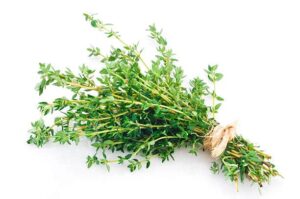 Anti-inflammatory Properties
Anti-inflammatory Properties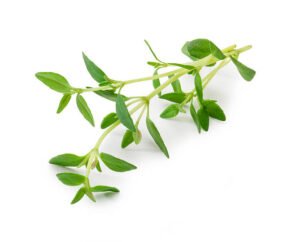 Respiratory Health
Respiratory Health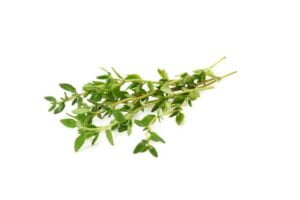 Digestive Aid
Digestive Aid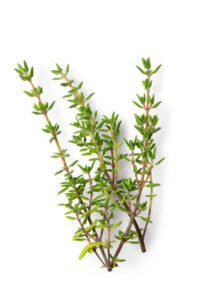 Cognitive Function and Memory
Cognitive Function and Memory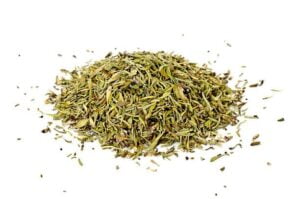 Cardiovascular Health
Cardiovascular Health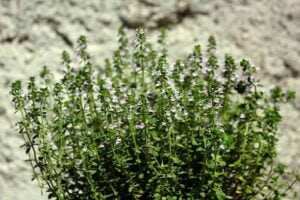 Immune Support
Immune Support